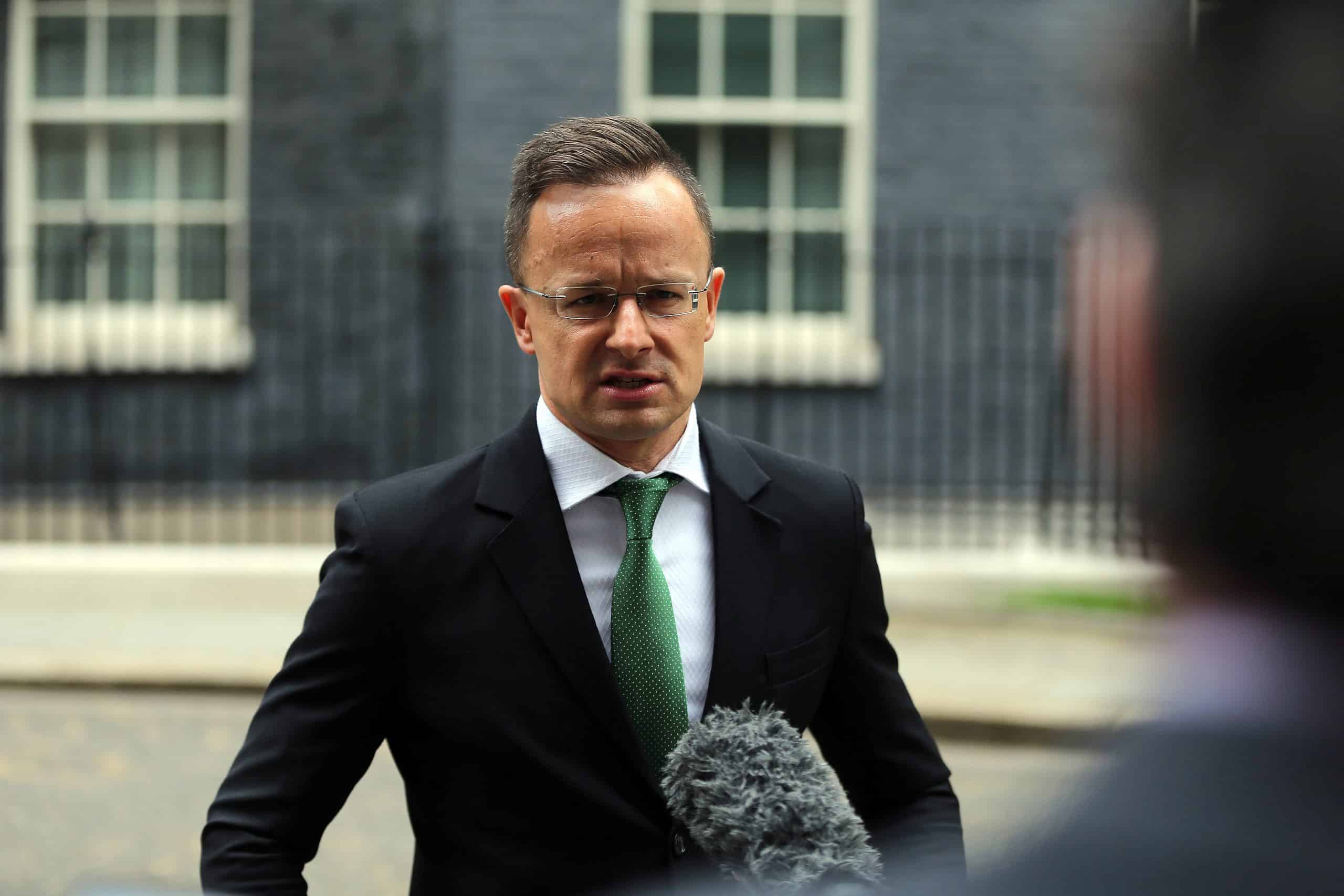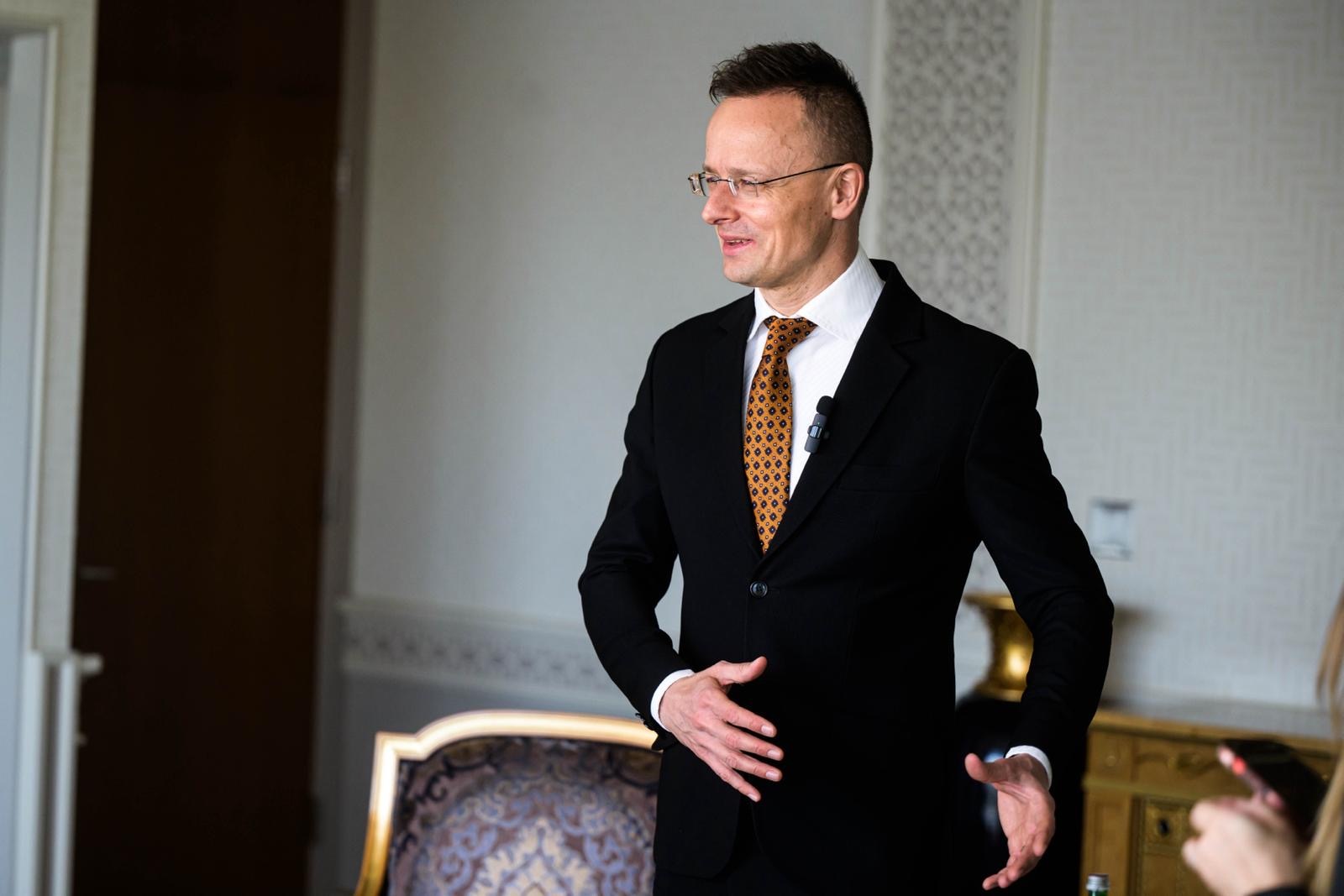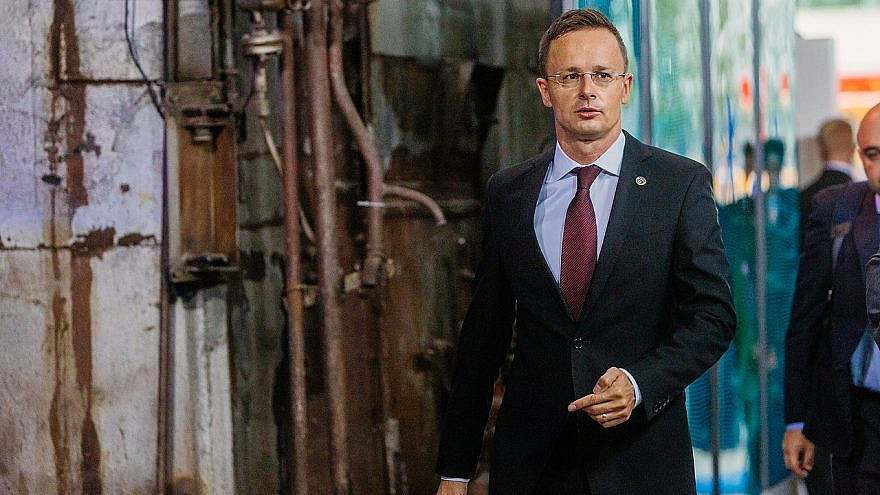Israel’s war with Hamas in the Gaza Strip, which is roiling the Middle East, has become the “No. 1 issue” of the European Union’s Foreign Affairs Council, Budapest’s top diplomat told JNS on Wednesday.
Péter Szijjártó, Hungarian minister of foreign affairs and trade, spoke with JNS during a visit to the U.N. headquarters in New York City. “I have never experienced such emotional, such tough debates among the foreign ministers” than “the ones which have taken place about the situation in Gaza and in the Middle East,” he said.
Szijjártó noted that the 27 E.U. member states exhibit “a very clear difference of viewpoints” and took Josep Borrell, the E.U. foreign-policy chief, to task for presuming to speak for the whole alliance when he denounced Israel’s military action against Hamas.
The Hungarian diplomat also had harsh words for Borrell’s efforts to push the world to “impose” a solution to the Israeli-Palestinian conflict. He wondered aloud to JNS how “one person—a top official–can represent the European Union and how he can speak on behalf of the member states knowing that the foreign policy falls in the absolute sovereign capacity of the member states themselves.”
Hungary’s position, fundamentally, is to remember what started the current war: Hamas’s attack on Oct. 7, Szijjártó told JNS.
“There was a heinous terrorist attack taking place against Israel. Thousands of missiles fired on a sovereign country. Hundreds of people died. Thousands of people have been wounded. Hundreds have been taken hostage,” he said. “If we neglect how the whole conflict started, then we come to very bad consequences, which we really would like to avoid.”
Emergency passports
An unsourced report in Israeli media in November claimed that Hungary and Germany issued passports to hostages in Gaza to facilitate their release. The logic appeared to be that states with dual citizens being held hostage could lean on the terrorist organization that was holding them in a way Israel could not on its own.
JNS asked Szijjártó about those reports and the Hungarian diplomat confirmed, for the first time, that at one point, Budapest issued passports to five Hungarian-Israeli hostages, who already held Hungarian citizenship, as a recognition of their status.

Three of the five were women or girls who were eligible for release during a seven-day humanitarian ceasefire at the end of November. Szijjártó told JNS that the three were released, with Qatar’s help.
A fourth Hungarian-Israeli died in captivity and the fifth, a middle-aged man who wasn’t eligible for release during the prior ceasefire, is “hopefully” still alive, Szijjártó told JNS.
“I do hope that the negotiations which have been going on now about a possible ceasefire, which would give a framework for releasing the hostages, would end up in him being released as well,” Szijjártó said. “So therefore, we support the international efforts made by Qatar, Egypt and others.”
A staunch ally of Israel, Budapest has an adversarial relationship with Hamas, unlike some European counterparts. After seeing violent pro-Hamas protests in European streets in the early days of the war, including immediately after Hamas’s Oct. 7 massacre, Hungary banned all rallies that support “terror organizations.”

The United States has designated Hamas as a terrorist organization for some 27 years. The European Union also considers Hamas a terror group.
JNS asked Szijjártó how Hungary differentiates between a pro-Hamas protest and a gathering in support of Palestinians.
“We have to be very clear that what you have been witnessing on the streets of the western part of Europe is a clear outcome of the huge influx of illegal migrants to Europe taking place in the last nine to 10 years,” he said.
Hungary has been at the forefront of warning that the “parallel societies” formed in the wake of the migrants’ arrival “would bring in this modern type of antisemitism,” he said.
“That happened. You see the riots, the protests on the streets, the anti-Israeli stance, the pro-Hamas stance,” Szijjártó added. “In Hungary, we made it very clear that we do not tolerate these rallies, regardless of what the name is. All these represent support to a terrorist organization, which has attacked a strategic partner of ours.”


























